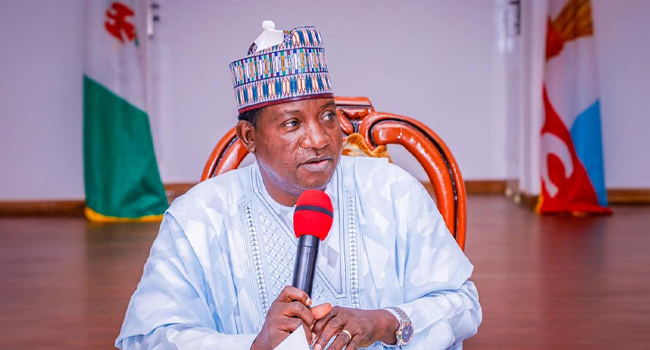
UPDATE: FG TO SANCTION EMPLOYERS OVER INDECENT WORKING CONDITIONS
Agency Report
According to the Federal Government, employers who provide indecent working conditions that violate national and international labour regulations will face consequences.
This was said by Mr. Simon Lalong, the Minister of Labour and Employment, on Friday in Abuja during the launch of the Decent Work Country Programme III (2023–2027).
The DWCP was established with the goals of advancing employment, defending rights at work, expanding social security, and fostering social discourse.
The International Labour Organisation and the Federal Ministry of Labour and Employment worked together to organise the programme.
According to Lalong, the lack of decent work has persisted across the economy since well-paying occupations with social safety benefits are the exception rather than the rule. Informal employment has also become the norm.
He claims that employees in the unorganised sector of the economy are subjected to hazardous working conditions, low pay, lengthy workdays, low rates of unionisation, and bad working conditions.
“As well as the absence of efficient employment and job creation opportunities and conditions of underemployment, among others.
“Government is aware of the activities of some of these employers, who, due to the pursuit of profit, disregard the extant labour laws.
“This creates work environments that frustrate the attainment of decent work for employers or employees because of the quest for profit.
“Many workers are exploited and make work in very indecent and intolerable conditions, which negate all local and international labour laws.
“Hence, we shall not fail to sanction such organisations and ensure that the rights and privileges of Nigerian workers are protected,” he said.
He declared that he had given the ministry’s Inspectorate Department instructions to take accountability and guarantee that all decent labour laws are followed nationwide.
“I will be involving pertinent government agencies to make sure that these entities are fully made to face the rod of the law,” declared the minister.
According to Lalong, the implementation of the Decent Work Country Programme would guarantee the productivity of both new and existing jobs in the public and private sectors.
“It would also provide opportunities for career progression to deliver a fair income and social security for the family.
“It will ensure that the tenets of decent work are mainstreamed into all Employment Generation activities,” he said.
Speaking as well, Dr. Vanessa Phala, the ILO Country Director for Nigeria, said that the social partners were involved in a thorough, inclusive, and consultative process that went into creating the DWCP.
He claims that the ILO carried out a diagnostic investigation on Nigeria’s decent work situation in 2021 and received accurate data on the current state of affairs.
According to her, a number of proposals were made to address Nigeria’s lack of good work.
The DWCP paper, according to Phala, will be a tool for tackling the social and economic issues facing the nation.
“It will ensure job-rich, inclusive, and sustainable growth.
“It is also an instrument that the government and social partners can use to mobilise resources needed to address productive employment and decent work,” she said.
Mr Matthias Schmale, UN Resident Coordinator, said that Nigeria was lagging far behind in achieving the Sustainable Development Goals.
“Sadly, Nigeria is seen as the biggest in the African continent, if not by whole.
“We must really work very hard together to ensure that Nigeria, like everyone else, catches up in achieving the Sustainable Development Goals.
“If Nigeria can achieve the SDGs, the implementation of DWCP would be a thing of the past,” he said.
Schmale said that the UN would continue to offer the Nigerian government a series of transformative initiatives to help accelerate the SDG achievement.
NAN
![]()
